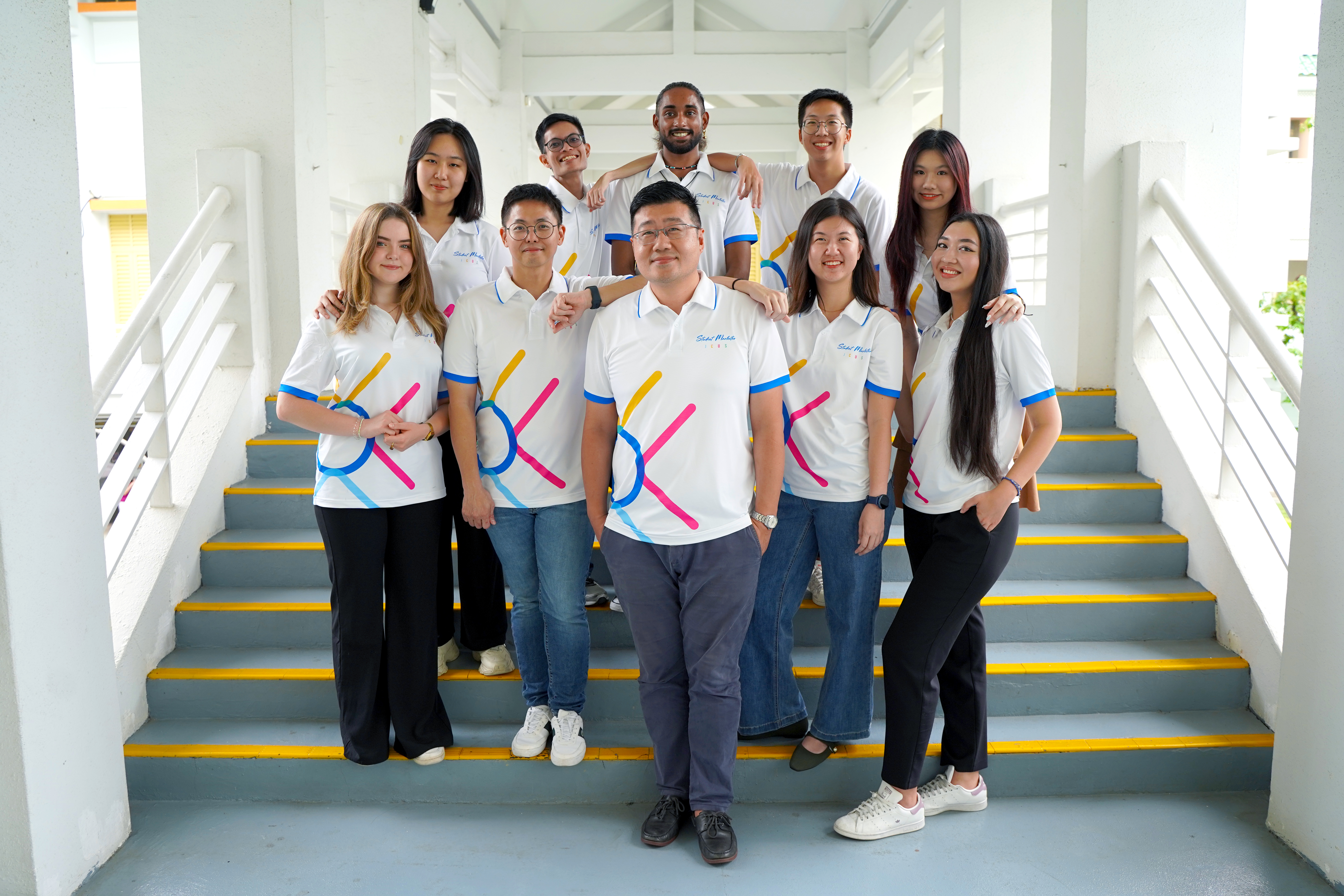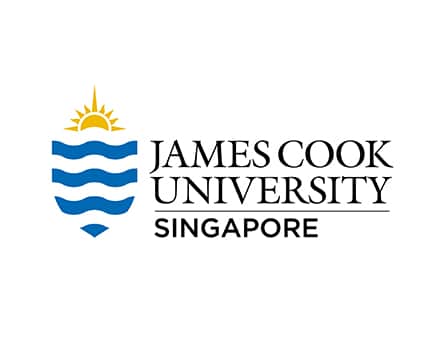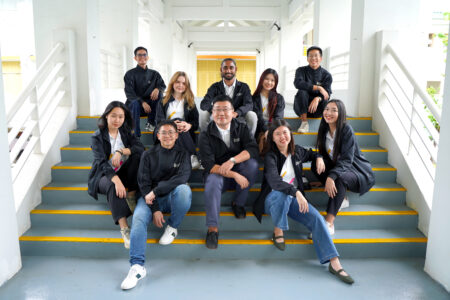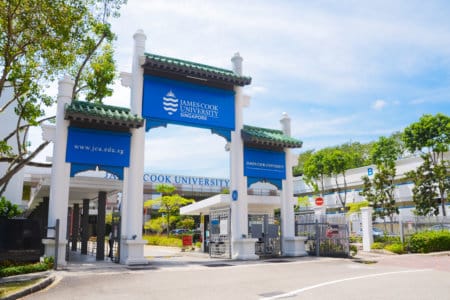Choosing the right university is a big decision, with many factors to consider. Beyond academic reputation, a university should have good resources, campus life, and facilities; it should also place equal emphasis on authenticity and connection. James Cook University (JCU) in Singapore ticks all of these boxes.
Through the Student Marketers Project, the university empowers current students to share their journeys, offering authentic perspectives to guide others in making informed decisions. “Traditional marketing often falls short with this demographic, so we empowered current students to share their authentic experiences,” says Jacky Leng, Associate Director of Recruitment and Partnerships at JCU Singapore.
Since its inception, the project has grown to include 93 storytellers across 29 disciplines, sharing their experiences through campus tours, virtual open days, and even the university’s “Chat with our students!” platform. Their stories highlight JCU Singapore’s unique appeal – being the only overseas university with full university status in Singapore – and much more.
Explore these webinars for a better understanding of why they love it here:

James Cook University’s Singapore campus is owned by James Cook University Australia, part of the top 2%* of universities globally. Source: James Cook University in Singapore
1. A great university experience
JCU Singapore’s commitment to quality education is reflected in its EduTrust Star award – and many other accolades – but what truly sets it apart is vibrant campus life. Just ask Pow Wongtanakarn, a second-year Bachelor of Cybersecurity student.
After considering many universities, he chose JCU Singapore as it was the only institution to offer a programme that could be completed in two years. What he found here, however, was so much more than an accelerated programme. He found a second home, with plenty to do and enjoy, not just on weekdays but weekends too.
“As the president of the university’s football club, I’ve met people from around the world and toured local businesses, which has enriched my university experience,” he says.
2. Great local culture and public spaces
International students in Singapore often face high living costs, but with careful budgeting, they can make life more affordable and make the most of their time in one of Asia’s most futuristic cities. “One main way to manage costs is by eating at food courts, where meals typically range from five Singaporean dollars to less than S$8,” says local student Tzer Chyan Lim.
Plus, what better way to know more about local culture than at its famed food courts? Whether it’s a Michelin-starred food stall or mega malls and skyscrapers, Singapore has lots to offer international students. No matter where you go, you’ll always feel welcomed and comfortable.
“Public cleanliness is taken very seriously in Singapore, with strict laws and fines for littering or disorderly conduct in public spaces,” says Tu Jiajing Judy, an international student from China. “Always use the green or designated bins around Singapore, whether in HDB complexes, malls, or our school.”
3. It’s easy to manage finances in Singapore
Managing finances as an international student can be a balancing act, especially in a bustling city like Singapore. Vivek Vardan Reddy, an international student from India, discovered that he could get creative with finances. Since his accommodation takes up two-thirds of his budget, he lives close to campus and cooks at home twice weekly to save money. “I keep track and stick to my budget,” he says.
David UY from Cambodia prefers simplicity – spending minimally on clothing and eating at hawker centres or the school canteen.
Each student, in their unique way, found Singapore’s balance of affordability and quality ideal for managing finances on a student budget.
4. Accommodation for every preference
There are many options when looking for a place to stay in Singapore. Henry Chen Yen-Jui, for example, wanted a place close to his university with easy access to public transportation – and he found it. “I decided on a location near a major MRT station, which made getting around much easier,” he says.
Another student Wasut Rotjanarat found somewhere affordable that also felt like a good fit. “Beyond budget, I also prioritised the place’s vibe since it can ultimately affect your mood and academic performance,” he says.
For Tomiris Dadamurzayeva, she benefited from tenant reviews and lease terms that made her renting process transparent and secure. “I research online and speak with current or former tenants about their experiences with the accommodation,” she says.
5. A solid start to careers
It’s no secret that the skills nurtured at university help when transitioning into your early career. That’s what Nicholas Seet Wei Kiat, a Bachelor of Psychological Science graduate, experienced. Since the programme required extensive research methods, he leveraged them in his first job. “There were a lot of research methods that we studied, and they come in handy very often, especially when you’re first entering the workplace,” he says. “I feel like it’s a skill that helps you regardless of whatever field you’re in.”
Networking is just as important here as anywhere else to build a career in Singapore. When Gurleen Kaur Bhatia, a graduate of Psychological Science, moved to Singapore, everything was new to her. However, she actively networked with potential recruiters through the JCU career fair, attended seminars, and joined LinkedIn groups, significantly increasing her chances of job success. Today, she is an associate at HCLTech, a global technology company in Singapore.
6. A balance of theory and hands-on learning
Whichever programme you choose, JCU Singapore’s curriculum balances foundational knowledge with practical application. The core philosophy of JCU Singapore is to nurture graduates who are knowledgeable and can turn insights into action.
“One way to do that is through internships and hearing from people in the industry – those who have succeeded or failed – and to understand why they failed,” says lecturer Dr. Tan Kim Lim. “More often than not, I try to bring students to companies to talk to industry professionals, practitioners, CEOs, and others.”
Speak to a current student today.
Follow JCU Singapore on Facebook, X, Instagram, YouTube, and LinkedIn
*2024 ShanghaiRanking Academic Ranking of World Universities as a percentage of higher education providers in the International Association of Universities (IAU) database













